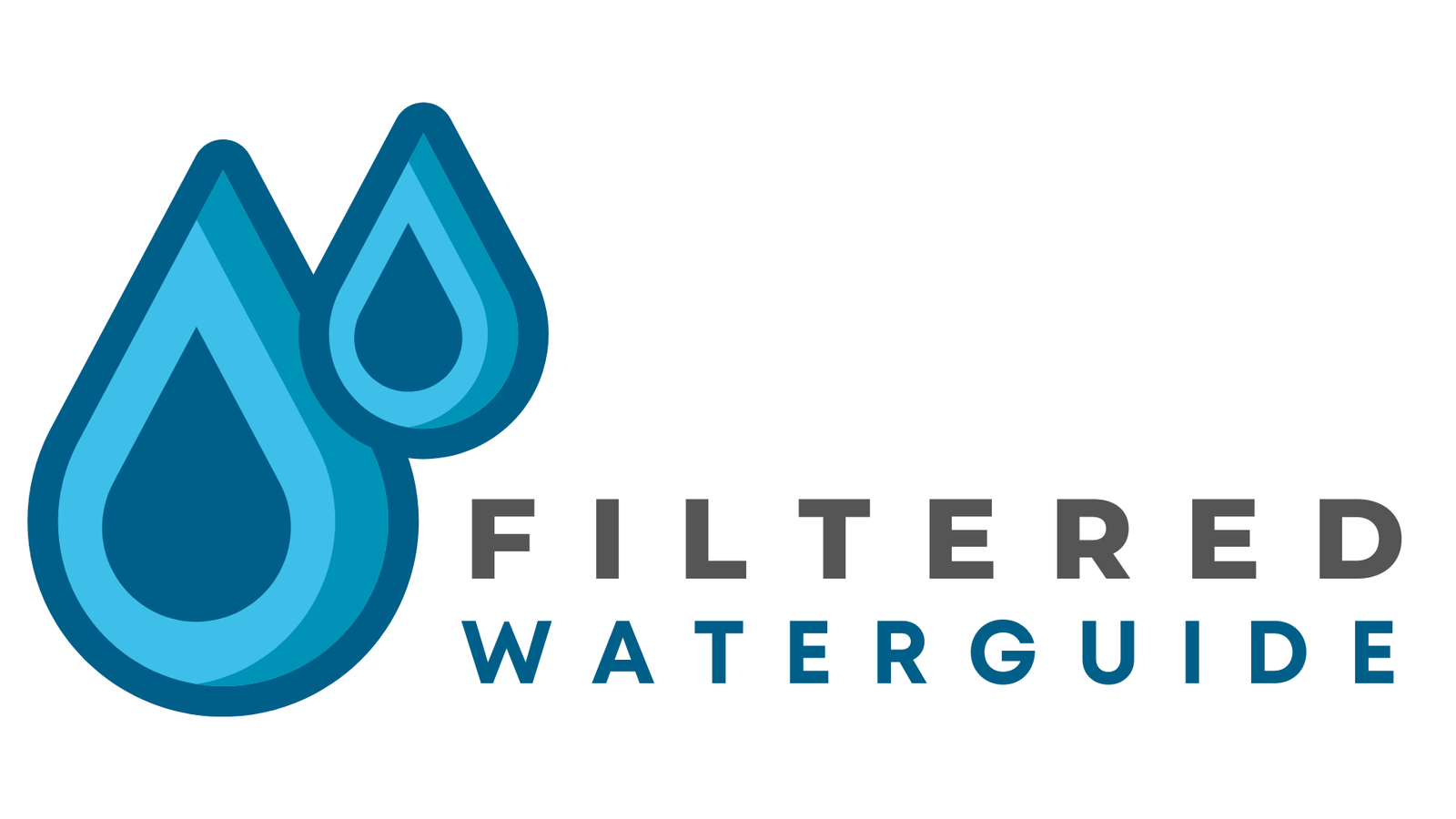Filteredwaterguide.com is supported by readers. If you purchase through referral links on our site, we make a commission at no extra cost to you. Learn more.
Whole House Water Filter Maintenance Tips
If you have purchased and installed a whole house water filtration system (also known as point of entry water filters), you are most likely enjoying some of the purest and best tasting water you have ever had.
Another benefit of having a whole house water filter is they do not take much time or effort to maintain.
Please be sure not to confuse this last statement with meaning they are maintenance-free because that is certainly not the case.
To keep your point of entry water filtration system supplying you with high-quality drinking water over a long period, you will have to perform some periodic maintenance steps on them.
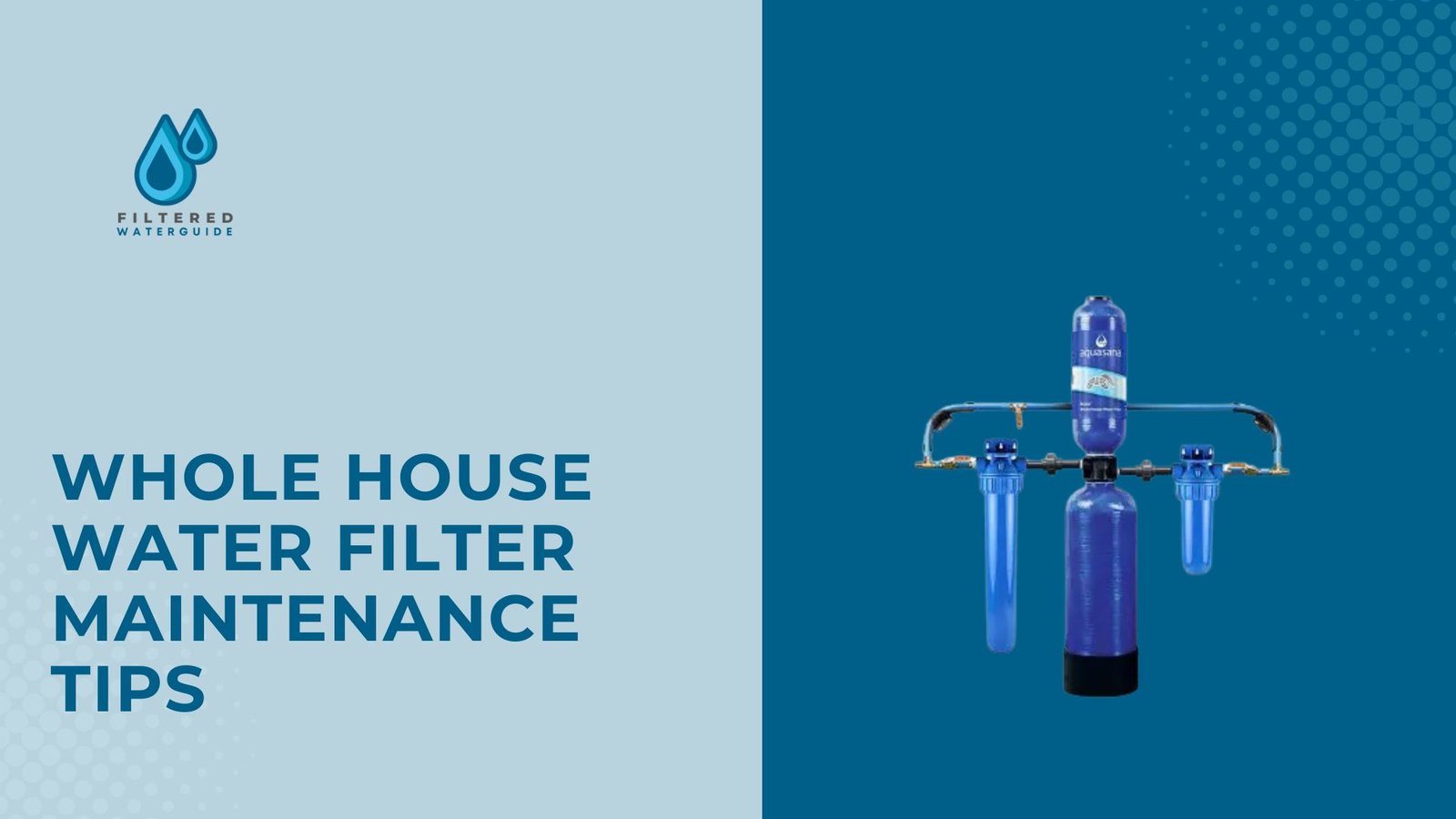
That’s what I am here to discuss in this article. I will use my extensive research on the subject and my many years working around swimming pool filtration systems to provide you with several whole house water filter maintenance tips.
If you follow these suggestions, you and your family should have pure and healthy drinking water available to you well into the future.
How Long Should Your Whole House Water Filter Last?
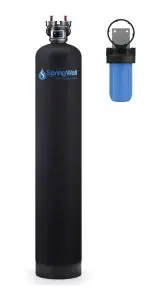
This is something that definitely cannot be answered with a one-size-fits-all answer. It’s like asking the question how long do car engines last. There are simply too many factors that go into this.
Some of the factors that go into determining how long your whole house filtration system will last are:
- The quality of the system. It stands to reason that a higher quality whole house water filtration system such as those made by Aquasana will last longer than an extremely budget-friendly one that is made out of less durable materials.
- The number of contaminants that are routinely present in your tap water. The more contaminants the harder your filtration system has to work to keep your water pure and this may shorten its lifespan.
- The number of components that make up your whole house water filter. This is because the more components that you have as part of your water filtration setup, the more likely you are to experience a part failure.
- The size of the components. It only makes sense that the smaller a component is on your whole house filtration setup, the more work it has to do to produce quality water.
- The gallonage that passes through the system daily. It’s like a car; the more it’s driven the shorter the remaining lifespan of the engine.
- The effort you put into keeping up with its required maintenance.
It’s this last one that I will help you with today and the importance of it should not be underestimated.
If you must have an answer to the above question, if you purchase a quality home water filtration system and properly maintain it throughout its lifetime, there is no reason that it shouldn’t last you 10 to 15 years or even more.
Also, it’s worth noting that some individual components on point of entry water filtration systems such as salt-free water softeners are known for not having the same longevity as some of the other filtration system components.
Basic Tips to Maintain Your Whole Home System
Here are some of the best whole house water filter maintenance tips that I can give you:
1. Installing Correctly
Although proper installation is not really a maintenance step for your home’s water filtration setup, it perhaps is the single biggest factor in how easy it is to maintain.
Why is that? The answer will become clear when you read the following characteristics of a properly installed whole house water filtration system:
It does not matter whether it’s a wall-mounted or floor water filtration setup. There must be plenty of room to access valves to bypass the system for cleaning and to get to individual components to clean them or change the filters inside them.
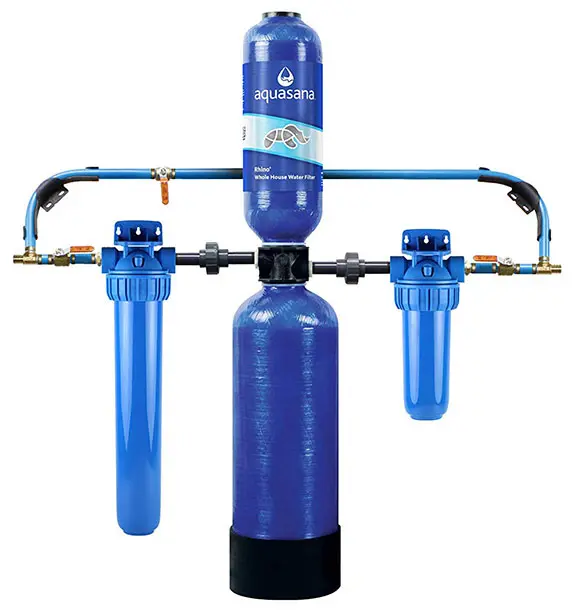
The components must also be installed in the proper order in the setup. This may seem like a no-brainer but I have seen some pretty crazy self-installs.
As an example; sediment filters come first, water softeners come next, and these are then usually followed by an activated carbon filter.
So, in an improperly installed water filtration system where your water softener comes before your sediment filter, this could cause the water softener to be exposed to larger contaminants which will clog it up faster and make it work harder and less efficiently.
This quite possibly could impact your water softener’s useful life too.
2. Regular Cleaning Routine
It must be noted that some components on your whole house water filtration system will clean themselves during their working process.
This includes water filtration setups that use iron filters and salt-based water softeners. Each has what is known as a backwash cycle for cleaning the media inside of them.
The rest of the cleaning process you will have to do yourself. While doing this, it’s important to remember to only use non-toxic cleaning chemicals or simply rinse the filters and parts using water.
It’s also recommended to do your whole house water filter cleaning routine regularly instead of only doing it after problems with your tap water arise.
At the very least you should inspect your water filtration set up monthly. Check for leaks, pressure buildup, and take a look at components (such as sediment filters) that have see-through bodies where you can tell if they need cleaning or not.
Regular cleaning of your whole house water filtration system should be undertaken once every three months or when you notice taste, odor, or color changes in your tap water.
3. Change Filter Cartridges on Time
The heart and soul of your whole house water filtration system are the filters that are found in some of its stages. These have to be periodically cleaned and eventually replaced too.
- What happens if you don’t replace the filters?
If you don’t replace your water filters on time, they may become clogged up. When this happens, they will work less efficiently and you may even notice a drop in water pressure in your house.
Some components on the system will have pressure gauges to help you monitor this. As you watch these gauges over time you will learn what pressure your system runs at when it’s working normally.
Periodically check these gauges for pressure buildup that is well above normal. That will indicate that it’s time for a system cleaning and/or filter replacement.
- How many replaceable filters are usually in a system?
First off, it’s important to note that there are usually several stages that make up a whole house filtration system. Many of these stages use other means besides filters to remove or reduce the tap water contaminants that pass through them.
Examples of whole house water filtration system components that don’t technically work by means of filtration include water softeners, UV light purifiers, and acid neutralizers.
Most whole house water filtration setups usually consist of two main types of filters. That’s a sediment filter that catches large contaminants and an activated carbon filter that catches smaller size contaminants.
Every two or three months the filters in these components should be taken out of the system and cleaned and sprayed off. This will help avoid some of the clogging and system efficiency problems that can plague a water filtration system with dirty filters.
This is the approximate time frames of when common system filters should be replaced:
Sediment filters – every 3 to 6 months
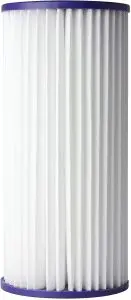
Activated Carbon Filters – every 6 months to a year
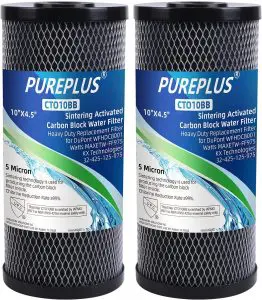
I always recommend reading your system’s owner’s manual thoroughly after installation and then strictly adhering to the manufacturer’s filter change guidelines and cleaning timelines.
Keeping a log of when you last replaced your filters and last performed a water filtration system cleaning will also help.
How to Maintain Your Filter When Leaving Home for an Extended Time Period
There is no reason to shut off your point of entry water filtration system when leaving home for an extended time. That’s because it will not be called upon to work if there is no demand for water in your home.
It can also dry out and harm the membrane and activated carbon filters in the system too if they are not always immersed in water.
The only exception to this would be during the winter months when you are afraid of freeze damage while you are away. If this is the case, you will not only have to shut the system off, but you will also have to be sure to drain any components that hold water inside them.
Be sure to flush the system out well before drinking your water upon system startup.
Getting Expert Help When Needed
Does your work keep you so busy that you don’t have much time for home maintenance tasks?
Maybe you just don’t feel confident when it comes to performing maintenance on your whole house water filtration system.
If this is the case with you, then you certainly should know that you are not alone in these things by any means.
That’s why there are professionals that do water filtration system maintenance for a living. So, don’t be afraid to turn to them for help. Options here would most likely include the person that installed your water filtration system, a local plumber, or a tech at a company that installs whole house water filters as part of their services.
Be Proactive When It Comes to Water Filtration System Maintenance
There may be no other piece of equipment around your home that is more important to properly maintain than your water filtration system. After all, the water that you and your family drink can have a profound impact on your health if it’s not kept as pure as possible.
But good health is not the only important reason to perform routine maintenance and filter changes on your whole house water filtration system.
Clogged filters and membranes can also do such things as significantly cut down on your water pressure, lessen system efficiency, and even shorten your point of entry water filtration systems lifespan.
So be sure to take the time to regularly perform cleanings and filter replacements on your whole house water filtration system or hire someone to do this task for you.
